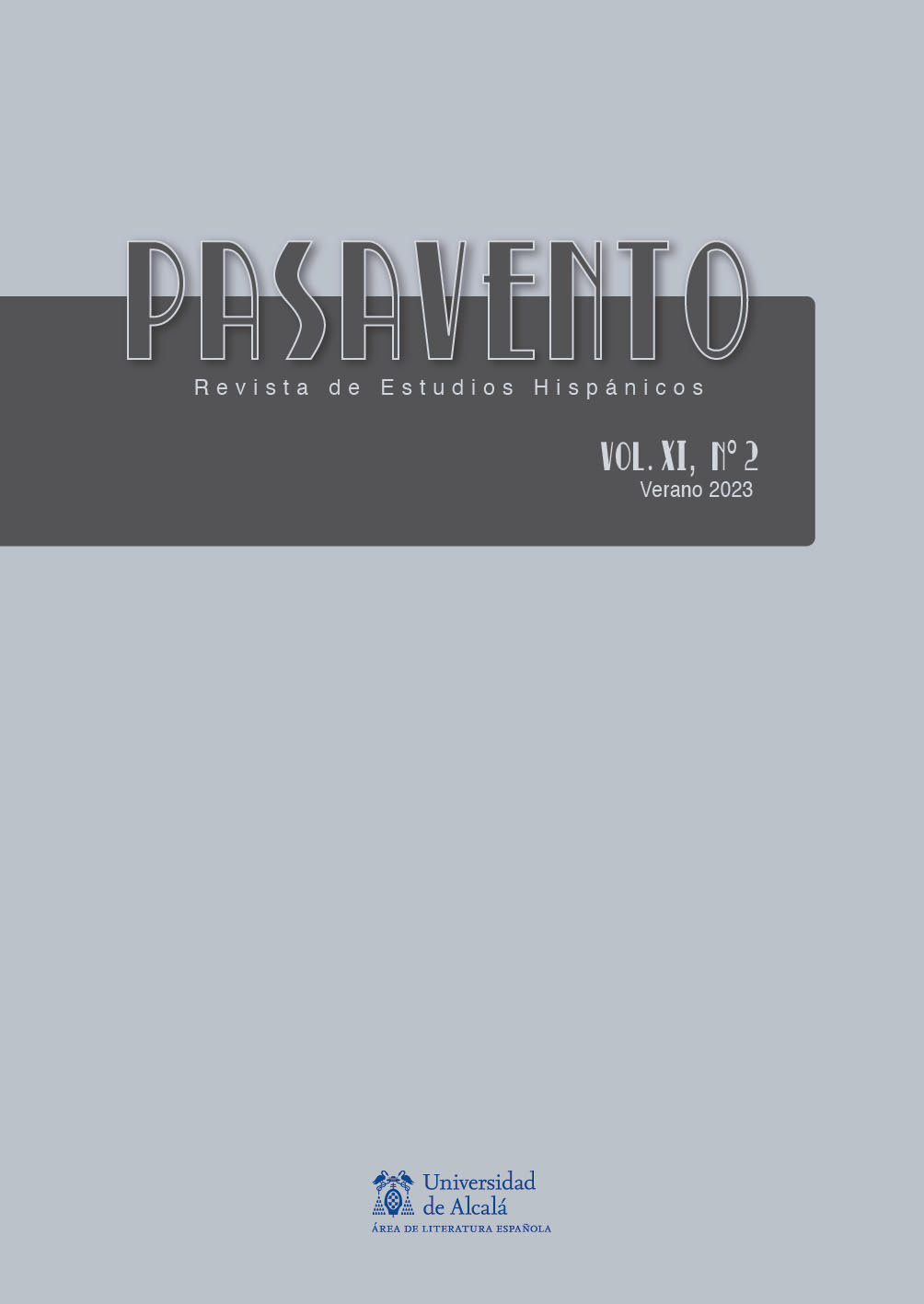The dismantling of factories. Contemporary ruins in the labor universe of Made in Spain (2014)
DOI:
https://doi.org/10.37536/preh.2023.11.2.2073Keywords:
Relocation, Made in Spain, Working Class, Labour FictionsAbstract
This article carries out an analysis of the novel Made in Spain (2014) by Javier Mestre from the problematic of the relocation of factories. The study is divided into four axes that allow us to relate aspects of the sociological tradition with textual operations. Thus, in the first place, we approach the confection of the two main characters and understand through them how the so-called "coaching of conscience" works, a social phenomenon that turns the worker into a demonized category. On the other hand, we observe how the two universes of reference of the novel (bourgeois and workers) are inserted within a social and cultural debate about the representation of the working class. The latter is described as a paradoxical, complex place, damaged in the first instance by the processes of relocation. Together with the characters, we also notice the treatment that Mestre gives to the transformation of labor spaces (the factories). The author carries out a bidirectional consideration that contemplates the effects in the country of origin (Spain) and the situations of impoverishment and exploitation in the country of arrival (Morocco). Finally, we analyze the political meaning of the novel's ending, which is presented in terms of failure. The author dismantles any option for individual change and points to the general framework of the system, whose logic requires a critical and communitarian movement that denounces the effects of relocation. Made in Spain is, in short, a political device that, through literary support, takes a critical stance against the processes of dismantling and remodeling of labor that have taken place in recent decades.
References
Alonso, Luis Enrique y Carlos J. Fernández Rodríguez (2009). “El trabajo en la era posfordista: un malestar permanente”, Papeles de relaciones ecosociales y cambio global, 108: 21-33.
Balmès, Thomas (2004). Nokia, una fábrica decente, Francia: Kaarle Aho / Thomas Balmès / Olivier Mille.
Becerra, David (2014). “Made in Spain”, Mundo Obrero, 274-275. <https://www.mundoobrero.es/2014/07/16/made-in-spain/> (1 de octubre de 2022).
Bergalli, Roberto (2001). “Relaciones entre control social y globalización: fordismo y disciplina; post-fordismo y control punitivo”, in Modelar para gobernar: el control de la población y el territorio en Europa y Canadá, una perspectiva histórica, dir. Quim Bonastra. Barcelona: Universitat de Barcelona, 241-264.
Chirbes, Rafael (2000). La caída de Madrid. Barcelona: Anagrama.
Coriat, Benjamin (2015). El taller y el cronómetro. Ensayo sobre el taylorismo, el fordismo y la población en masa. Madrid: Siglo XXI.
Dardenne, Jean-Pierre y Luc Dardenne (2014). Dos días, una noche. Bélgica-Francia: Les Films Du Fleuve / Archipel 35.
Ehrenreich, Bárbara (2001). Por cuatro duros. Cómo (no) apañárselas en Estados Unidos. Madrid: Capitán Swing.
Gutiérrez, Pablo (2012). Democracia. Barcelona: Seix Barral.
Jones, Owen (2013). Chavs. La demonización de la clase obrera. Madrid: Capitán Swing.
Lara Sánchez, Miguel Ángel (2014). Del fordismo a la automatización del trabajo mental. México: Universidad Nacional Autónoma de México.
León de Aranoa, Fernando (2002). Los lunes al sol. España-Italia-Francia: Elías Querejeta / Mediapro / Eyescreen / Quo Vadis Cinéma / Sogepaq.
Loach, Ken (2001). La cuadrilla. Reino Unido-Alemania-España: Parallax Pictures / Road Movies Filmproduktion / Tornasol Films S.A / Alta Films.
Martínez Fernández, Ángela (2019). “Ficciones de lo común: narraciones colectivas frente a un futuro incierto” en Entresiglos: del siglo XX al XXI. Estudios en homenaje al profesor Joan Oleza, dir. Xelo Candel Vila, Anejos Diablotexto Digital, 4: 340-356.
Mestre, Javier (2011). Komatsu PC-340. Madrid: Caballo de Troya.
Mestre, Javier (2014). Made in Spain. Madrid: Caballo de Troya.
Navarro, Elvira (2014). La trabajadora. Barcelona: Literatura Random House.
Olin Wright, Eric (2018). Comprender las clases sociales. Madrid: Akal.
Pinilla Sánchez, Rafael (2013). “Narrativas del posfordismo: de las ruinas de la fábrica a la celebración de la Creative Class”, Revista de estudios globales y arte contemporáneo, 1: 157-170.
Robles, Iñaki (2019). “Ruinas contemporáneas y nuevos monstruos: resignificaciones, apropiaciones y comunidad de vulnerables en edificios fantasma de España”, in Congreso Internacional Infraciudades y ciudades monstruosas. Narrar, representar, imaginar los paisajes urbanos de la desaparición social, dirs. Gabriel Gatti y Jaume Peris Blanes [inédito], Universitat de València.
Romero, Laullón Ricardo y Arantxa Tirado Sánchez (2016). La clase obrera no va al paraíso. Crónica de una desaparición forzada. Madrid: Akal.
Rosa, Isaac (2011). La mano invisible. Barcelona: Seix Barral.
Rosa, Isaac (2013). La habitación oscura. Barcelona: Seix Barral.
Sanz, Marta (2003). Animales domésticos. Barcelona: Editorial Destino.
Sennett, Richard (1988). La corrosión del carácter: las consecuencias personales del trabajo en el nuevo capitalismo. Barcelona: Anagrama.
Downloads
Published
How to Cite
Issue
Section
License
Copyright (c) 2023 Ángela Martínez

This work is licensed under a Creative Commons Attribution 4.0 International License.








